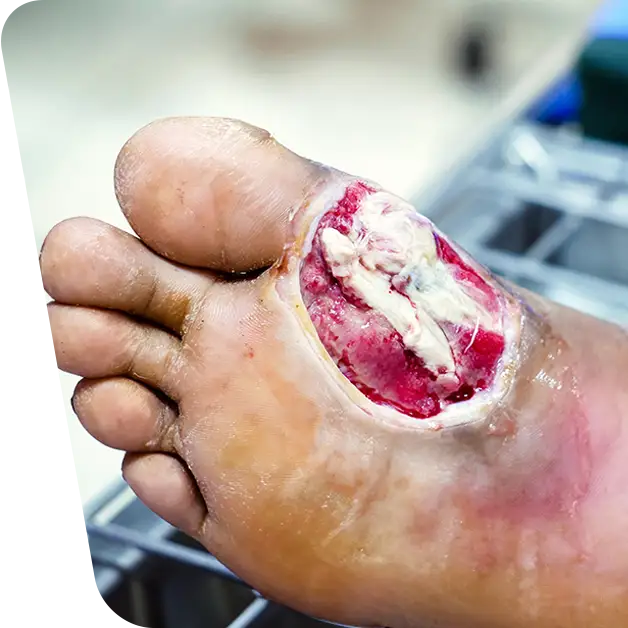Thyroid surgery is a common procedure. Many people develop or will develop a thyroid condition during their lifetime. Venart’s surgeries are performed with maximum efficiency, with an emphasis on minimally invasive surgery so that the patient benefits from a fast recovery and an extremely low risk of infection. While some patients may respond to non-invasive treatment, others require elaborate surgery.
Regardless of what type of thyroid surgery you undergo, you need to adjust your diet after thyroid surgery. While some people prefer to avoid changing their diet, breaking old habits can be a critical element after surgery, which if not adhered to can reduce quality of life.
We turn our attention to a few things to consider when adjusting diet after thyroid surgery.
Table of contents
ToggleThe first step is diet immediately after thyroid surgery
For a few days after the procedure, you may experience numbness and swelling in your throat. You may also have a little trouble swallowing. Until this discomfort subsides, you should consider opting for soft, easy-to-swallow foods. For example:
- Sauces, soups;
- Soft (minced) meat or meatballs cut into small pieces;
- Purees or vegetables chopped or blitzed;
- Nutritious drinks.
Try to avoid hard foods and uncooked vegetables. It is not advisable to consume hot drinks or foods to avoid aggravating a sore throat.
Once your throat returns to normal, you can consider adjusting your diet for a faster recovery. Healthy nutritious foods can help the body heal faster.
You can add these foods to your diet during the recovery period:
- Berries (strawberries, blueberries, grapes, pomegranates) – a source of antioxidants and vitamin C;
- Fresh vegetables (potatoes, carrots, cauliflower, broccoli) – a source of carbohydrates for energy and vitamins A and C;
- Fresh fruit – a source of vitamin A, C, carbohydrates, fiber, and antioxidants.
- High-fiber foods (whole grains, fruit, vegetables, cereals) – you need enough fiber after surgery to avoid constipation;
- Protein-rich foods (chicken, turkey, pork, seafood) – these foods are a good source of protein for healing purposes. If you don’t eat meat, eat lean protein from nuts, tofu, and beans;
- Vitamin B from foods (meat, seafood, eggs) After surgery, you need a sufficient amount of vitamin B to maintain an adequate number of blood cells. Vegetarians may need to take vitamin B supplements;
- Water – try to drink enough water every day to avoid dehydration and constipation.
Avoid foods that can cause constipation. These include:
- Dairy products;
- Dry or dehydrated foods;
- Processed foods;
- Red meat.
Ideally, you should switch to this diet a few weeks before surgery. This way you shouldn’t have to make substantial changes after the procedure.
Thyroid surgery and metabolism
After undergoing thyroid surgery, your doctor will prescribe hormone replacement medication. However, it can take time to determine the correct dose.
Thyroid hormone regulates metabolism. When the gland doesn’t produce enough hormone (hypothyroidism), metabolism starts to slow down. This means that the number of calories your body can *burn* is reduced. This usually leaves you with weight gain.
Leptin resistance
People suffering from thyroid disease also experience leptin resistance. Apart from other functions, leptin is responsible for regulating appetite, by signaling hunger and satiety respectively, thus stimulating the production of thyroid hormones to burn calories.
An excess of leptin may reduce sensitivity to it. This leads to confusing signals being given to the body, telling the brain that it is hungry when it is not. The resistance could remain after surgery, making it even harder to lose weight. This unpleasant condition is similar to the insulin resistance often seen in obesity.
Change in time – Diet after thyroid surgery, the main factor
Once the thyroid (or part of it) is removed, metabolism can change. This could especially lead to weight gain. When hormone levels return to normal, you can start to lose weight. This can prove to be difficult and takes time.
By adjusting your diet, you can avoid weight fluctuations while your doctor determines the right dose of hormones.
What to eat after thyroid surgery
After the recovery period , you do not have many dietary limitations. However, you may consider adhering to a healthy diet in order to prevent weight gain. If you were overweight before surgery, now is a great time to start losing weight.
In addition to the foods you eat immediately after surgery, consider adding the following items to your diet:
- Eggs – a source of protein, vitamins A and E, protein, zinc, calcium, iron, and folic acid;
- Healthy fats (nuts, avocado oil, coconut oil, olive oil, seeds) – an excellent source of vitamin E and energy;
- Leafy green vegetables (spinach)-a source of vitamins A, C, E, and K, as well as fiber, iron, calcium, potassium, and magnesium;
- Probiotics (kefir, pickles, pickled cabbage, yogurt) – a source of good gut bacteria. Add probiotics to your diet immediately after surgery for better health and added vitality;
- Salmon – a source of omega-3, protein, vitamins, selenium, zinc, and iron;
- Organ meats – a source of vitamin A, zinc, iron, vitamin B, and copper.
Thyroid surgery does not necessarily lead to weight gain. However, maintaining a healthy and balanced diet can improve your quality of life and prevent weight problems in the future.
You should also avoid milk and calcium supplements. All intake of dietary supplements should be done under the supervision of your doctor.
If you need to take antacids or acid reducers, consult your doctor to ensure the correct dose.
Thyroid surgery can help you deal with a variety of health problems. The lifestyle you choose after surgery not only affects the recovery process, but also further dictates your quality of life.
By switching to a healthy diet a few weeks before surgery and following it after the procedure, you give your body a chance to heal quickly and gain the opportunity to enjoy a happy and healthy life.
Our team of specialists have extensive experience in different types of thyroid surgery. If you would like to learn more about the stages of thyroid surgery, what it entails and what the procedure entails, don’t hesitate to schedule a consultation. We are happy to answer any questions or concerns you may have.







